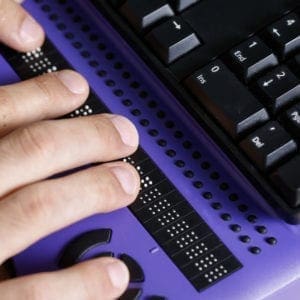 A next-generation property management system streamlines operations across the organization and provides better management controls. It reduces overhead and minimizes costs through increased efficiency while increasing occupancy rates, RevPAR and overall profitability through better data accessibility and process efficiency.
A next-generation property management system streamlines operations across the organization and provides better management controls. It reduces overhead and minimizes costs through increased efficiency while increasing occupancy rates, RevPAR and overall profitability through better data accessibility and process efficiency.
Could the reasons for a hotel or resort to upgrade its PMS capabilities be any more compelling? Probably not.
In fact, according to The 2016 Smart Decision Guide to Hotel Property Management Systems, (now available for complimentary access), more than one-quarter (27%) of hoteliers who have not upgraded their PMS within the past 3 years indicate that they plan to do so in the next 12 months.
There is no shortage of reasons for hoteliers to migrate from a legacy PMS to a state-of-the-art system designed to meet their current and future market needs. Yet making the business case still generally means projecting the likely return on investment (ROI).
Questions to ask
When it comes to ROI, there are a number of questions that hoteliers should ask themselves.
The first question is to what extent will the new system reduce the amount of time currently being spent on managing front desk activities, including check-ins and check-outs, and on such time-consuming tasks as consolidating guest accounts and managing rates and availability across distribution channels, including OTA, GDS, Web, and travel agents?
Also, to what extent is the new system likely to improve sales and revenue — for example, by increasing bookings via web booking engine integration, increasing occupancy rates through real-time inventory updates, and increasing average daily rates through integrated revenue management and advanced forecasting tools?
Another key factor to consider pertains to reduction in losses, including losses related to errors in manual updates and delayed or lost room charge postings (guest purchases made across other parts of the property), as well as lower integration costs with third-party hardware and software.
Keep in mind that enhancing the quality of the overall guest experience through the deployment of a next-generation PMS should lead to a greater number of repeat guest stays and a higher volume and intensity of positive brand advocacy. The correlation between favorable guest reviews and positive economic outcomes should factor into the equation.
Good news: Next-generation systems won’t break the bank
Next-generation property management systems tend to be less expensive and require less up-front investment on the whole than their predecessors. There are many reasons for the shift to increased affordability, including the fact that installation is generally less complex and hardware less expensive compared to, say, a decade ago.
With some systems, the data is stored in the cloud, reducing (or even eliminating) the need for on-premise servers. Incidentally, most cloud-based systems also use a subscription “pay as you go” model, which generally means no long-term contracts and no upfront capital investment for the software or hardware. This may be an important consideration for smaller hotels with a limited budget.
In all cases, it is important to confirm which software features and modules, including future upgrades — as well as which hardware components, if any — are included in the base (recurring) price so as to avoid any surprises down the road.
Also, it’s important to factor both the direct and indirect costs into the equation. While the direct costs refer to the purchase price of the both the hardware and software, which, again, is likely to consist of a monthly charge for cloud-based systems, the indirect costs may include software customization, staff training and data backup.
Today, next-generation property management systems are empowering hoteliers with the ability to drive ever-increasing levels of efficiency and effectiveness. For many hotels and resorts, now may be the perfect time to start taking advantage of the advances in features and functionality of next-generation systems.
About the author
 Jeff Zabin is Research Director at Starfleet Research, which benchmarks best practices in hospitality technology. Recent titles include The 2016 Smart Decision Guide to Hotel Property Management Systems, The 2016 Smart Decision Guide to Hospitality Revenue Management and The 2016 Smart Decision Guide to Restaurant Management and POS Systems. A globally-recognized market research executive, Zabin’s bestselling business books on data-driven marketing improvement have been translated into more than a dozen languages. His has also written hundreds of popular benchmark reports and articles in leading trade publications across multiple industry sectors, including hospitality.
Jeff Zabin is Research Director at Starfleet Research, which benchmarks best practices in hospitality technology. Recent titles include The 2016 Smart Decision Guide to Hotel Property Management Systems, The 2016 Smart Decision Guide to Hospitality Revenue Management and The 2016 Smart Decision Guide to Restaurant Management and POS Systems. A globally-recognized market research executive, Zabin’s bestselling business books on data-driven marketing improvement have been translated into more than a dozen languages. His has also written hundreds of popular benchmark reports and articles in leading trade publications across multiple industry sectors, including hospitality.
The 2016 Smart Decision Guide to Hotel Property Management Systems is now available for complimentary download. It can be accessed here.



















